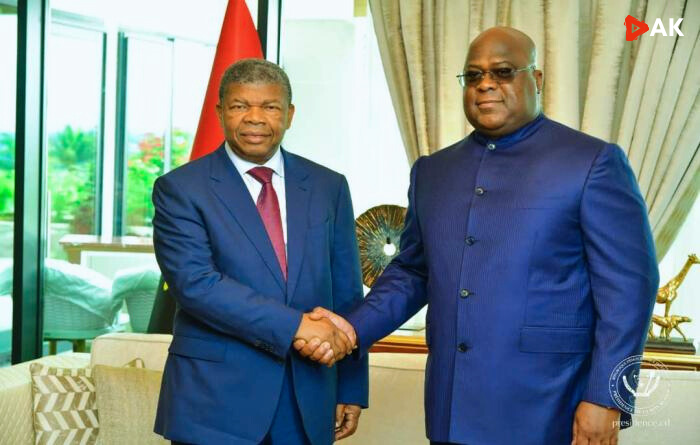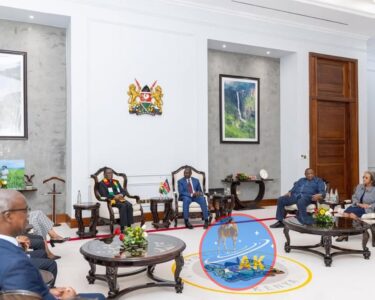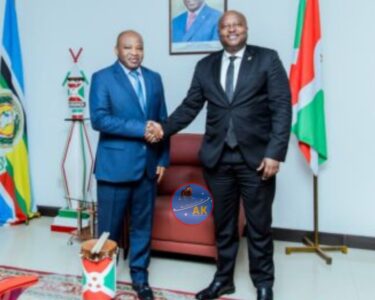
On August 21, 2024, a crucial ministerial meeting was held in Luanda under Angolan mediation to address the security and peace situation in eastern Democratic Republic of Congo (DRC). This meeting, bringing together high-level representatives from the DRC, Rwanda, and Angola, aimed to push the conflicting parties to sign a peace treaty rather than just a peace agreement. This shift towards a treaty raises significant strategic questions, particularly regarding the legal and political implications for the DRC.
Peace Agreement vs. Peace Treaty: Differences and Implications
Peace Agreement: A peace agreement is generally a document that formalizes a ceasefire or temporary arrangement between conflicting parties. It often aims to halt hostilities immediately, laying the groundwork for future negotiations or a long-term peace process. Peace agreements can be amended or renegotiated and do not necessarily carry strong legal recognition between the involved nations.
Peace Treaty: In contrast, a peace treaty is a more formal and legally binding international document. It involves mutual recognition, a permanent cessation of hostilities, and often includes provisions regarding reparations, border demarcations, or other permanent arrangements. A peace treaty is difficult to renegotiate once signed and creates lasting legal obligations for the signatories.
Why Opt for a Peace Treaty Over an Agreement?
The suggestion to sign a peace treaty instead of a peace agreement could indicate a desire to definitively stabilize the situation in eastern DRC. A peace treaty could offer stronger mutual recognition and establish a legal foundation for future commitments. However, it is crucial to understand the implications of this choice:
- Legal Binding: A peace treaty could bind the DRC to stricter and more permanent legal obligations towards Rwanda. This might include concessions on sovereignty or national security, with less flexibility for the DRC to reverse these commitments in the future.
- International Recognition: The treaty would grant international recognition to the negotiated terms, potentially strengthening Rwanda’s position, especially if the treaty terms favor Rwanda more.
- Historical Precedents: Historically, peace treaties have sometimes been used to legitimize controversial annexations or territorial arrangements. The DRC must ensure that its national interests are not sacrificed for the sake of a rushed peace.
Advantages and Risks for the DRC
Advantages:
- Long-Term Stability: If the treaty terms are fair, it could bring lasting stability to eastern DRC, allowing the country to focus on development and reconstruction.
- International Support and Recognition: A peace treaty could attract broader international support, including financial aid and investments.
Risks:
- Asymmetry of Benefits: If Rwanda secures significant concessions, such as maintaining its troops in certain DRC regions, it could compromise the DRC’s sovereignty and security.
- Legitimation of Foreign Presence: A treaty might legitimize Rwandan military or economic presence in strategic areas of the DRC, potentially fueling internal and regional tensions.
Analyson Kongo’s Recommendations
- Negotiate with Caution: The DRC must ensure that any peace treaty signed is balanced and protects long-term national interests. Every concession should be carefully weighed against the treaty’s benefits.
- Engage Legal Experts: Before signing a treaty, the DRC should consult international law experts to assess the long-term implications and avoid any cession of sovereignty.
- Involve Civil Society: The Congolese government should include civil society representatives and community leaders in the negotiations to ensure the treaty reflects the needs and desires of the Congolese people.
- Transparency and Communication: It is crucial to maintain transparent communication with the public to explain the treaty terms and avoid misinformation or distrust.
Conclusion
A peace treaty between the DRC and Rwanda could be a major step towards lasting peace in the Great Lakes region. However, the DRC must approach this opportunity with caution and strategy, ensuring that its national interests are not compromised. The situation on the ground, historical precedents, and regional dynamics must all be considered to prevent this treaty from becoming a tool for legitimizing Rwandan influence in eastern DRC.
Analyson Kongo will continue to closely monitor these developments, providing analysis and recommendations to guide policymakers and inform the public on the critical issues at stake in these negotiations.




